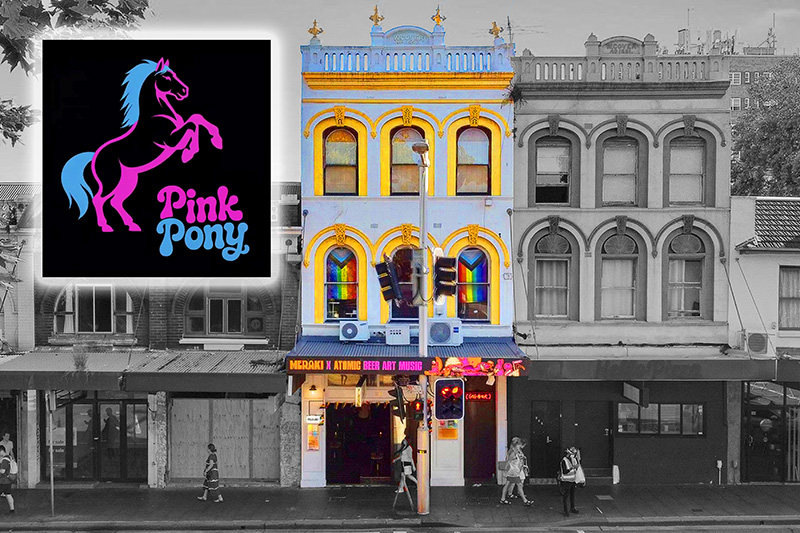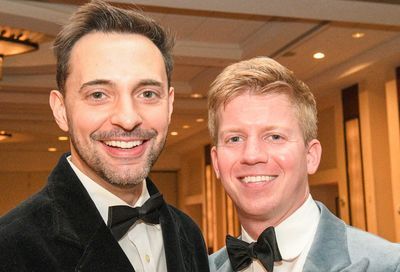VIDA Reverses Course on Cameras in Men’s Locker Room
"The idea wasn't to try to catch guys having sex. The idea was trying to get guys stealing stuff," says owner David von Storch.

VIDA Fitness is removing security cameras it had planned to activate at two locations following a “strong and emotional blowback” from community members, owner David von Storch told Metro Weekly.
The local gym chain, frequented by many members of the gay community, operates six locations throughout the D.C. metro area. It has announced plans to install security cameras in portions of the men’s locker room at the gym’s Logan Circle location to stop locker thefts.
Locker thefts — which, thus far, have only become a problem in men’s locker rooms — have increased at VIDA’s U Street and Logan Circle locations, according to von Storch.
Typically, thieves operate in teams of two, gaining access to the facilities and entering the locker room, where one member acts as a “lookout” from the sink area, while a second smashes combination locks and attempts to steal items from lockers.
“Within the last week, we had two people arrested for breaking and entering, stealing items from lockers,” von Storch said. “And, by the way, it’s not like there are 50 thefts a day. So stopping one theft is a really big deal.”
The proposed security cameras were intended to be installed near the sink area and the areas where people walk, not in areas where people would be in various states of undress. But a social media posting by a gym employee led to outrage among some patrons.
The story went viral on social media and was reported by local news outlets, prompting some to accuse the gym of intentionally violating male patrons’ personal privacy.
“The reality is that the initiative was so poorly communicated that some people felt there were ulterior motives for putting the cameras in, like we were trying to monitor behavior in the locker room, because the only locker rooms affected were the men’s locker rooms, and the only two locations were the principally ‘gay’ locations,” said von Storch. “So there was a heightened sense of sensitivity to the fact of where the cameras were being placed. But that’s where thefts were becoming a problem.”
Von Storch defended the idea of having the cameras installed, saying that their mere presence could deter would-be thieves from attempting burglaries. Additionally, they would have assisted the Metropolitan Police Department in investigating any reported thefts.
“We had a protocol in place, where the cameras are recording, but there’s no monitor where anyone inside the gym can see what’s being recorded,” he said. “The only time the tapes are being viewed is by MPD, after a theft has been reported. And they only would have looked at the time frame leading up to when the theft was reported.”
Von Storch — who isn’t involved with day-to-day operations, having stepped down as president of VIDA more than 18 months ago — said the gym had consulted with its own counsel, as well as MPD, to ensure that the camera installations weren’t violating D.C. privacy laws.
“There’s a legal definition of privacy, and that may differ from a personal definition of privacy,” he said. “So under the legal definition of privacy, we were completely in compliance with the law. We’re not going to do something that’s illegal — that’s just not our M.O.
“So the rules are: you have to have a clearly posted sign whenever you’re videotaping someone. We couldn’t videotape anybody in their locker bays, but we can videotape people coming and going from the locker room and in the locker room itself.
“We couldn’t film in the showers, in the toilet stalls, or the changing areas. I don’t know about the sauna and steam room, but we didn’t even try that, you know, because the idea wasn’t to try to catch guys having sex. The idea was trying to get guys stealing stuff. But, that said, I think there’s a separate understanding, at a personal level, of what privacy means. And so I think some folks felt that their ‘privacy,’ as they define it, was violated.”
A gay man himself, von Storch understands why some gay patrons may have reacted badly to the announcement about installing the security cameras — which, to some, echoed the ways that gay behavior has historically been policed, and for others, may have been interpreted as an implicit accusation that gay men, in particular, are prone to engaging in inappropriate behavior.
“As someone who’s been around for a while, I understood why someone might have misinterpreted that as saying ‘Hey, we’re spying on you because you’re being pervy,'” von Storch said. “We took the post down, but by then, the horse had left the barn. People took screenshots of the post and sent it to others, and with the way the Internet works, it was too late to correct the record. The damage had been done.”
When pressed on what would have happened if the security cameras had been installed and captured sexual behavior between patrons, von Storch replied, “That’s a good question. I have stated publicly that the only purpose of the cameras was to stop theft. So unless we made a public declaration, in advance, of the policy changing, there’s no ethical way where I could say, if someone was doing something sexually inappropriate, that the cameras were supposed to be used for one purpose, but now we’re using it for another.”
Von Storch noted that his chief frustration with the controversy remains the perception, by some, that the cameras were installed with bad intentions in mind.
“People were assuming that our intent was not what we were saying,” he said. “And once people have that perception, it’s the hardest thing to undo. So it was too late to even trying to mount an information campaign, about ‘This is what we’re doing, and this is what the results of such projects have been.’ So I instructed the gyms to take the cameras out. And part of the reason why it was interpreted that way was because we really got the messaging screwed up. So that’s on us.”
Removing the cameras now leaves the gym chain scrambling to find other ways to prevent illegal entries and locker thefts.
A possible alternative to security cameras would be to install turnstiles, in which gym patrons would only be able to access the facility by scanning a bar code or using fingerprint identification technology, or by being admitted to the facility by a front desk employee.
VIDA’s D.C. locations previously had turnstiles installed before 2009, but those turnstiles were removed because they were hated by customers, according to von Storch.
VIDA’s Reston location has turnstiles operated by bar codes, which cannot be “borrowed” or used by a second person — even if they attempt to use a screenshot of the bar code. Such measures help combat the types of burglaries that the club has experienced at its U Street and Logan Circle locations — which, unfortunately, lack sufficient space to install handicapped-accessible turnstiles.
“It’s a real tough problem to solve,” von Storch admitted. “If we posted a security guard in the locker room, you can only imagine the shitstorm that would stir up. If we try to provide locks to customers — and this is what we saw happen at U Street — they’re getting smashed by one thief while the other serves as a lookout. And as soon as someone comes in, they go, ‘Hey,’ and their partner completely stops what they’re doing.”
He adds that it’s becoming harder to stay a step in front of would-be criminals.
“This was an unexpected setback,” von Storch said of the security camera controversy. “So we’re going to have to go back to the drawing board and figure out: what can we do to increase security? And the answer is, I don’t know yet.”
Support Metro Weekly’s Journalism
These are challenging times for news organizations. And yet it’s crucial we stay active and provide vital resources and information to both our local readers and the world. So won’t you please take a moment and consider supporting Metro Weekly with a membership? For as little as $5 a month, you can help ensure Metro Weekly magazine and MetroWeekly.com remain free, viable resources as we provide the best, most diverse, culturally-resonant LGBTQ coverage in both the D.C. region and around the world. Memberships come with exclusive perks and discounts, your own personal digital delivery of each week’s magazine (and an archive), access to our Member's Lounge when it launches this fall, and exclusive members-only items like Metro Weekly Membership Mugs and Tote Bags! Check out all our membership levels here and please join us today!
























You must be logged in to post a comment.